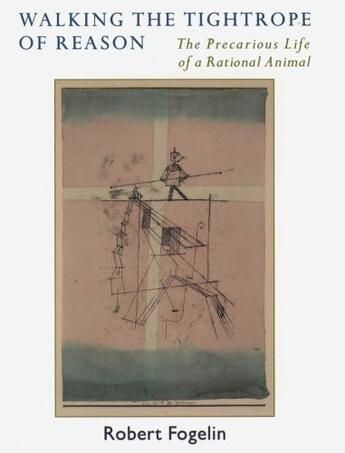-
Nombre de pages : (-)
-
Collection :
(-)
-
Genre :
(-)
-
Thème :
Non attribué
-
Prix littéraire(s) :
(-)
Résumé:
Human beings are both supremely rational and deeply superstitious, capable of believing just about anything and of questioning just about everything. Indeed, just as our reason demands that we know the truth, our skepticism leads to doubts we can ever really do so.
In Walking the... Voir plus
Human beings are both supremely rational and deeply superstitious, capable of believing just about anything and of questioning just about everything. Indeed, just as our reason demands that we know the truth, our skepticism leads to doubts we can ever really do so.
In Walking the Tightrope of Reason, Robert J. Fogelin guides readers through a contradiction that lies at the very heart of philosophical inquiry. Fogelin argues that our rational faculties insist on a purely rational account of the universe, yet at the same time, the inherent limitations of these faculties ensure that we will never fully satisfy that demand. As a result of being driven to this point of paradox, we either comfort ourselves with what Kant called "metaphysical illusions" or adopt a stance of radical skepticism. No middle ground seems possible and, as Fogelin shows, skepticism, even though a healthy dose of it is essential for living a rational life, "has an inherent tendency to become unlimited in its scope, with the result that the edifice of rationality is destroyed." In much Postmodernist thought, for example, skepticism takes the extreme form of absolute relativism, denying the basis for any value distinctions and treating all truth-claims as equally groundless. How reason avoids disgracing itself, walking a fine line between dogmatic belief and self-defeating doubt, is the question Fogelin seeks to answer.
Reflecting upon the ancient Greek skeptics as well as such thinkers as Hume, Kant, Wittgenstein, Nietzsche, and Whitman, this book takes readers into--and through--some of philosophy's most troubling paradoxes.
Donner votre avis














